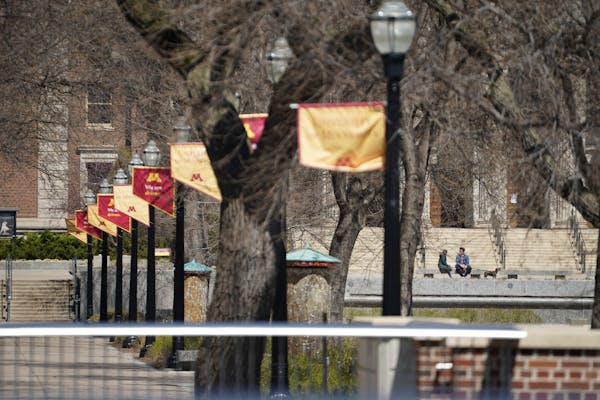Gov. Tim Walz is hoping to reach a bipartisan pact on a new pandemic relief package next week, signaling Wednesday that there is fresh momentum to aid struggling businesses and workers affected by new shutdown measures to slow the spread of the coronavirus.
"I think we are all pretty close to agreement that this needs to be quick, it needs to be directed," Walz said. "It needs to keep those small businesses afloat, their workers afloat, and we need to use this as an opportunity to feed those who are hungry in conjunction with this so that it is a win-win-win."
Walz toured the Brooklyn Park warehouse facility of Second Harvest Heartland on the eve of Thanksgiving, helping pack emergency food boxes that now serve as a critical lifeline for a growing number of families statewide. Hunger rates in Minnesota have soared since the first COVID-19 cases were detected in the state in March.
"We are in the hunger fight of our lives," said Allison O'Toole, CEO of Second Harvest Heartland.
O'Toole said 1 in 8 Minnesotans now do not know where their next meal will come from, including 1 in 5 children. That is up from 1 in 11 Minnesotans — and 1 in 8 children — a year ago, she said.
"That means moms and dads are watering down milk to stretch a gallon," said O'Toole, who described the crisis as one of the worst surges of hunger to date. "That means parents are skipping meals so their kids can have food. So it's sobering and staggering every day."
Walz said that when he delivers the state's budget forecast and revenue report on next Tuesday, that outline will give negotiators a starting point for hashing out pandemic relief. The governor has said he would like to call lawmakers back early for a special session to approve a relief package before an expected mid-December session that would be needed to sign off on an extension of his emergency powers.
On Wednesday, Walz highlighted proposals for a grant program for restaurant owners and tax credits for businesses that help deliver and donate food. Walz and House Democrats are also proposing extending unemployment benefits for another 13 weeks and sending $500 payments to low-income families enrolled in the state welfare program.
House Republicans this week outlined a $400 million grant program for businesses, halting sales tax collections for bars and restaurants that are serving takeout only and some temporary license fee relief.
Walz was joined Wednesday by Agriculture Commissioner Thom Peterson in touring the Second Harvest Heartland warehouse, which opened in March and was funded partly by state public works dollars. There, they also discussed the need to destigmatize hunger and the need for help in the state.
"We are in this right now," Peterson said. "We need to keep going, we need to keep being generous when you can and we need to ask for help when we need to ask for help."
Walz also renewed his plea for federal government assistance, urging Senate Majority Leader Mitch McConnell to resume talks on a broader aid package while acknowledging that the Democratic-led U.S. House may need to compromise to forge an agreement.
To try to spark new discussions on federal aid, Walz is banking on being able to leverage what he described as the "outsize influence" that the National Governors Association now wields given that states have had to take the lead on testing and COVID relief this year while also anticipating taking on much of the task of distributing an eventual vaccine.
"We can't have gaps in our safety net," Walz said.
Stephen Montemayor • 612-673-1755
Twitter: @smontemayor

Want to share info with the Star Tribune? How to do it securely

'Safe recovery sites' would offer syringes, naloxone and more to people using drugs. The plan could be in peril.
New Minnesota GOP leaders seek peace with party's anti-establishment wing

Who is Republican Lisa Demuth, Minnesota's first House speaker of color?

